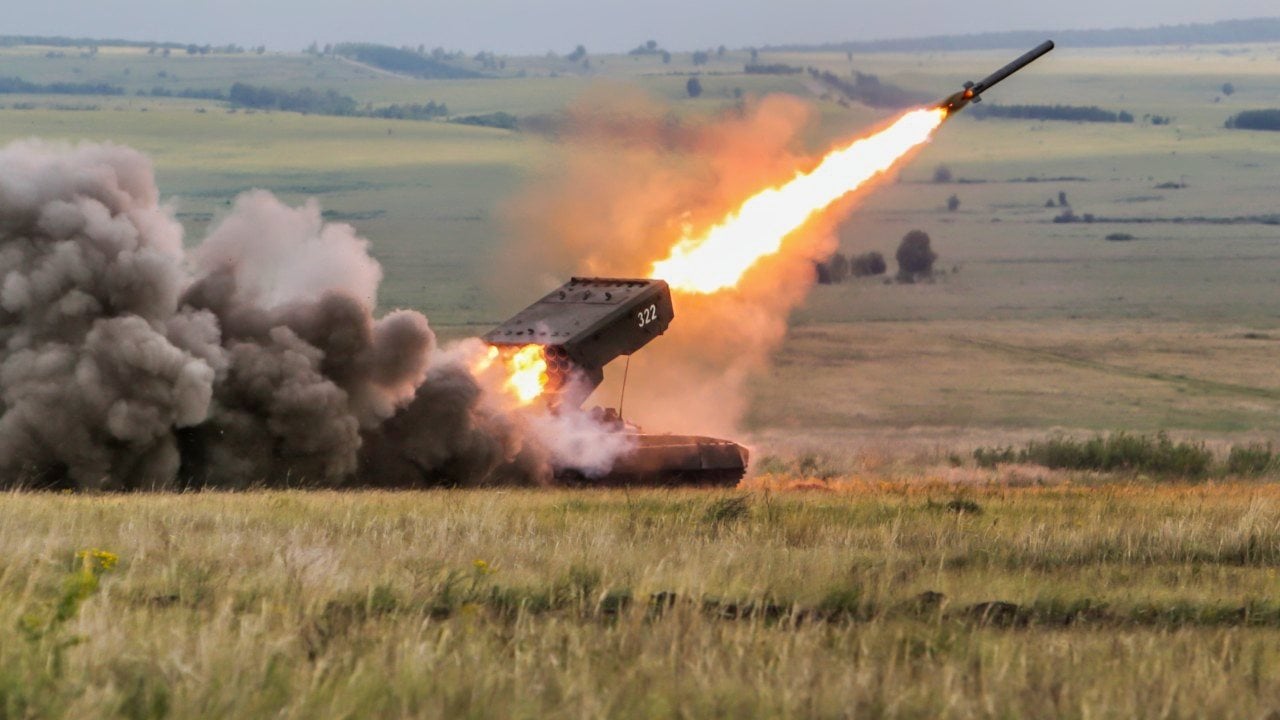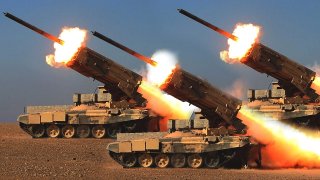Ukraine's Kursk Gambit: The End of Putin, or Zelensky?
It is difficult not to sympathize with Zelensky's desperation in a war that is indeed going badly. However, at some point, cabinet reshuffles and resignations will not suffice to deflect responsibility for decisions that have made it even worse.
Ukraine's surprise attack on Russia's Kursk region has been widely hailed as strategically brilliant: Kyiv has turned the tables on Moscow; Russian President Vladimir Putin has been deeply humiliated; the offensive will help end the war on favorable terms for Ukraine; it could even lead to a Ukrainian victory.

These plaudits were premature. Desperate to stem Russia's advance in the East, Ukrainian President Volodymyr Zelensky wagered that shifting units of his best brigades away from the defense of Donetsk to attack Kursk might turn the tide of war, disorienting the Russians and causing them to divert forces from their offensive in Donetsk. Sparking broad anti-Putin dissent would further undermine Moscow’s war effort.
It has Done the Opposite
But it has barely dented Putin’s strong public support, at over 75 percent, while spurring Moscow not to slow but speed up its pace of attacks across the critical Donetsk front. Like a tiring prizefighter facing a stronger adversary, Zelensky lowered his defenses to try a knockout punch. Momentarily dazed, Putin shook off that punch and is now pummeling his staggering rival.
The shock and distress felt in Russia, mainly in the Kursk region itself, has been contained. As Russian media focuses not on their military's failure in Kursk but its success in Donetsk, with numerous towns falling on the way to key cities such as Toretsk, Vuhledar, Chasiv Yar, and Pokrovsk, they feature stories of triumph, not tragedy.
Meanwhile, the Kursk invasion, coupled with Kyiv's expanding drone attacks on Russia, mainly serves to magnify the anger ordinary Russians feel toward Ukraine and its Western backers. It matters not that such anger seems hypocritical; what matters is that Zelensky's Kursk gambit is backfiring both in the battle for Russian morale as well as in the battle to defend Ukrainian territory.
The Issue of Ukrainian Morale
While commentators hail the “morale boost to an embattled nation and symbolic blow” to Putin, sober analysts look beyond symbols and narratives to question the fundamentals of the Kursk operation: a deep and vulnerable salient of insignificant terrain that Russia has largely contained and now begun bombarding. What's more, few Ukrainians are celebrating their prowess as invader-occupiers of Kursk when news of carnage and collapse on the Donetsk front now dominates the media. It may not be Russian anger at Putin, but Ukrainian anger at Zelensky, that risks turning critical.
This is because many Ukrainians view Zelensky, lionized in the West, and rarely subject to the critical scrutiny he faces in his own country, as having bungled two previous major campaigns. The first was Ukraine's 2023 counteroffensive that failed despite high expectations fueled by a large infusion of NATO weapons and training. Zelensky was blamed for a battle plan attacking at many points along the front instead of concentrating forces to achieve a major breakthrough. And he grew desperate toward year's end: pleading that his campaign had not failed, sacking his commander Valery Zaluzhny for daring to say that it had, and replacing him with Oleksandr Syrsky, known by troops as the "Butcher of Bakhmut" for loyally executing Zelensky's "fight to the last man" orders for the doomed city rather than sensibly staging a tactical retreat.
Zelensky's second big failure was squandering the fall and winter of 2023-2024 as Russia gathered for a new offensive. Military analysts lamented Zelensky's long delay in backing a new mobilization plan to alleviate Kyiv's crippling manpower shortage, and in building the kind of defensive lines and fortifications that Russia used so effectively. Instead, Zelensky prioritized operations to demonstrate that Ukraine was still on the attack, missile strikes on Crimea, and a shaky bridgehead on the Russian side of the Dnipro River, even if they were uncoordinated or made little strategic sense. That bridgehead was the village of Krynky, taken by lightly armed Ukrainian marines ferried on rubber rafts across river channels in what was touted as a step toward liberating Crimea.
A Sideshow
In fact it was just a small regiment lacking armored vehicles mired in swampy ground that Ukraine ultimately abandoned this summer after taking heavy losses in Russian counterattacks. Criticism of the Krynky operation has been intense, with Zelensky's defenders trying to paint it as a success because, however heavy Ukraine's losses, they are justified since Russia's were even heavier.
Russia's advantage in reserves of manpower and materiel has long since discredited such "body count" arguments that seek to portray losing as actually winning. They are certainly unlikely to persuade many Ukrainians, as their casualties mount from Russian counterattacks in Kursk. Zelensky's Kursk gambit was, in key respects, prefigured by Krynky: an operation of minimal military significance risking huge losses for a mainly political objective: flipping the script to persuade skeptics that a losing hand can win.
Perhaps it takes a devotee of chess, not poker, to remember that an adversary can decline your gambit and choose to play to their own strengths, which is what the Russians have done in Ukraine. If the Kursk invasion becomes a costly occupation while Ukraine's depleted Donetsk defenders lose more key cities, it may be Zelensky's third strike. Even in conditions of wartime solidarity, the Ukrainian elite's disdain for the actor-turned-president sometimes spills into the open.
Meanwhile, ordinary citizens increasingly blame Zelensky and his corrupt entourage, more than the war itself, for Ukraine's political and economic woes. While overall public trust in Zelensky is still above fifty percent, it has been on a steep downward trajectory since last year's failed counteroffensive. Even Zelensky admirers warned that he would bear full responsibility if the war went badly after his public disagreement with, and firing of, General Zaluzhny. It is difficult not to sympathize with Zelensky's desperation in a war that is indeed going badly. However, at some point, cabinet reshuffles and resignations will not suffice to deflect responsibility for decisions that have made it even worse.
About the Author
Robert English, a former Pentagon policy analyst, is Co-Director of Central European Studies at the University of Southern California. His research has focused on the Cold War’s end and aftermath in the former USSR and East-Central Europe, with a second specialization on the environment and geopolitics of the Arctic.
Image Credit: Creative Commons and/or Shutterstock.


